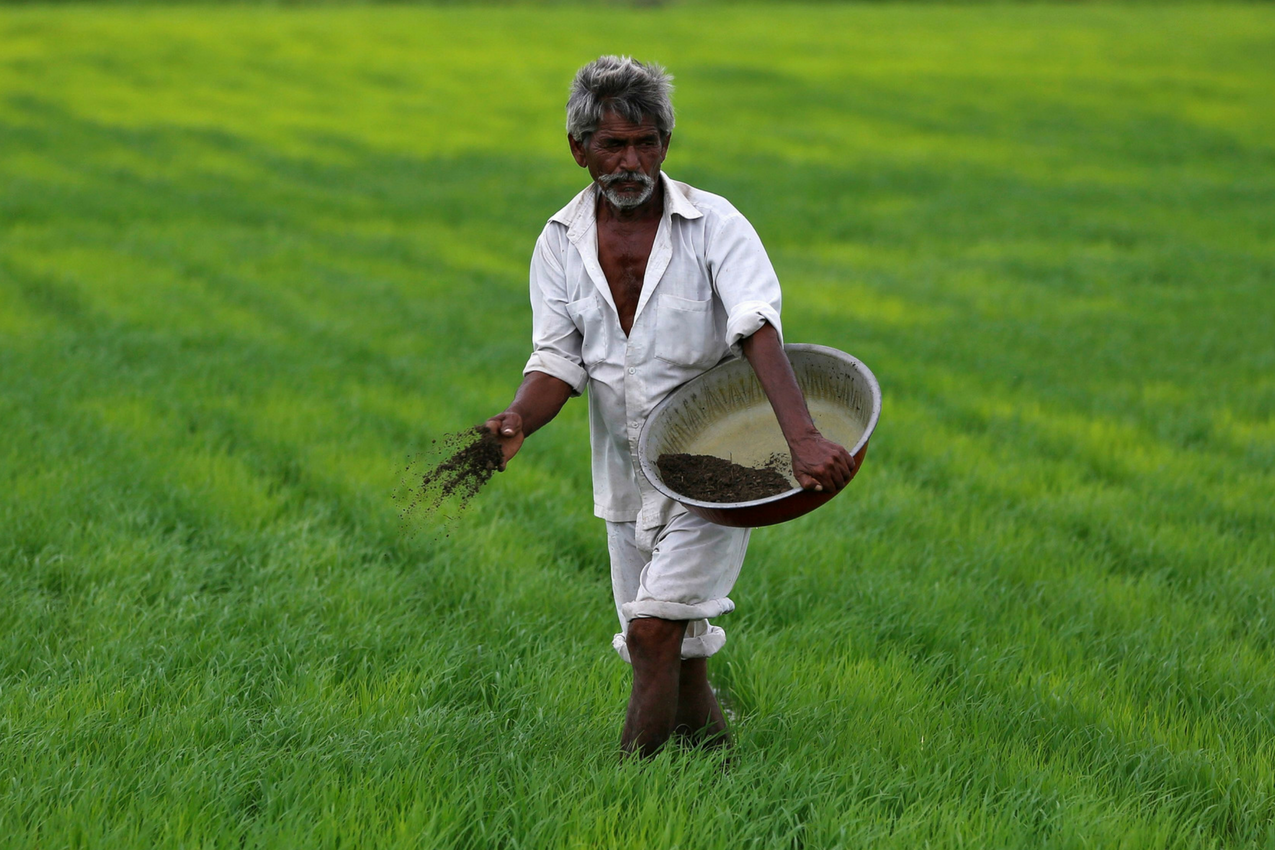After promising to spend an additional expense of ₹15,000 crore, if that is what it takes to support the farmers, the Modi Govt. Cabinet on Wednesday announced higher minimum support prices (MSPs) for 14 crops.
These higher prices have set each crop’s profits at a minimum of 1.5 times the cost of cultivation. The National Democratic Alliance (NDA) government is seeking to address the distress in the agrarian economy amidst ensuing farmers’ protests. This hike in MSP comes close on the heels of the 2019 general election and is largely being seen as an attempt to woo the agrarian society.
For the 2018-19 kharif (summer) crop season, the MSP for paddy has been fixed at ₹1,750 per quintal (an increase of ₹200 in absolute terms), amounting to 13% higher than the price was last year. This is the steepest hike the paddy crop has seen since 2012-13, when the increase was pegged at 15.7%.
The MSP hike for paddy constitutes a 50% raise over input costs a.k.a costs of cultivation—₹1,166.
The Central Government has assured distressed farmers that with this MSP hike for the summer season in 2018-19, they will receive 50% returns over cost. A crash in the prices of several farm commodities, especially, pulses and oilseeds, in recent months led to distress in the rural economy and farmers recording negative returns on many crops.
“Farmers weren’t getting adequate returns. They were naturally dissatisfied. Our prime minister understood this. That is why we have taken this historic decision,” Home Minister Rajnath Singh said.
The Home Minister added that higher support prices would increase the “purchasing power” of farmers, which would have a “wider impact on the economy”. The MSPs were calculated and recommended by the statutory Commission on Agricultural Costs and Prices (CACP).
The cost yardstick used to calculate the MSP includes all paid-out costs such, such as expenses incurred on seeds, fertilizers, manures, irrigation charges, hired human labour, rent paid for leased land, etc. The sharpest cost hikes came for a range of crops known as coarse cereals, aimed at correcting prices for small farmers. The MSP for bajra was hiked to ₹1,950, which is a raise of 97% over input costs of about ₹990. The MSP for jowar has been hiked to ₹2,430 from ₹1,700, a hike of 50% over costs.
For arhar pulse, the MSP saw a hike of 66% over input costs. It has been raised to ₹5,675 per quintal from ₹5,450, while the input costs for cultivating one quintal of arhar works out to ₹3,432, according to the CACP.
The support price of moong pulse has been hiked to ₹6,975 per quintal from ₹5,575. This is a 50% hike over cultivation costs of ₹4,650 per quintal. Urad MSP has been hiked to ₹5,600 from ₹5,400 per quintal, which constitutes a 62% increase over input costs of ₹3,438 per quintal.
The MSP of cotton (medium staple variety) has been increased to ₹5,150 from ₹4,020, which is a 50% increase over input costs of ₹3,433.The MSP for cotton (long staple variety) has been hiked to ₹5,450 from ₹4,320 per quintal.
The new support prices for oilseeds like soybean and groundnut are ₹3,399 (an 11.4% hike) and ₹4,890 (9.9%) per quintal respectively.









